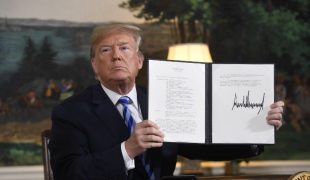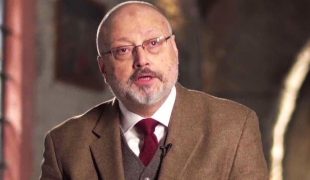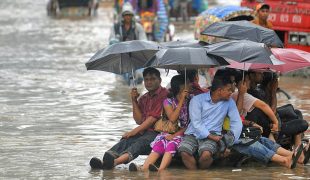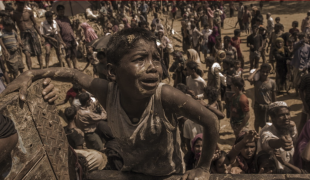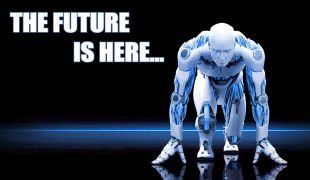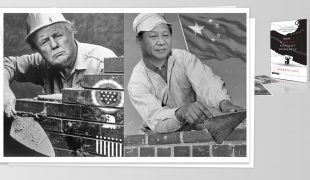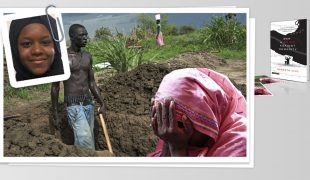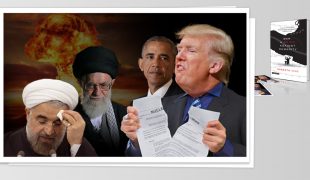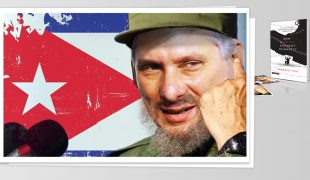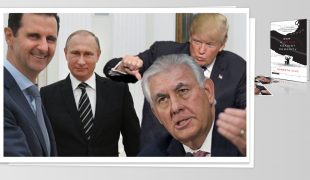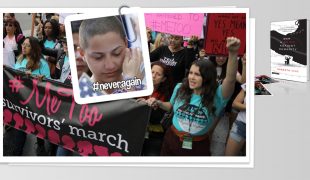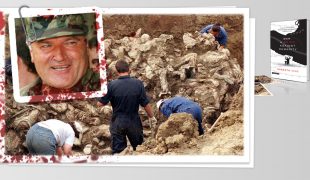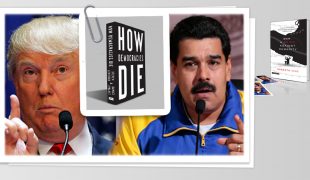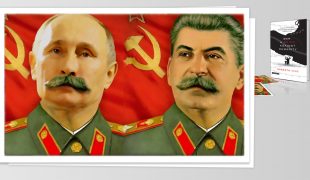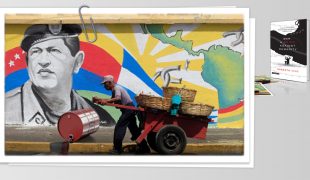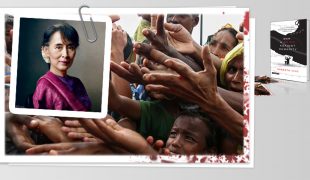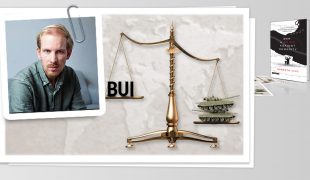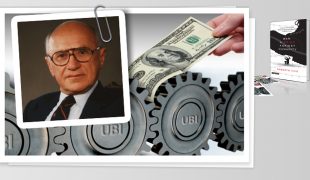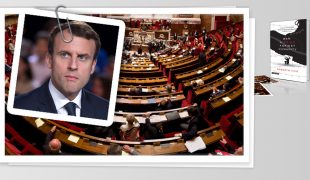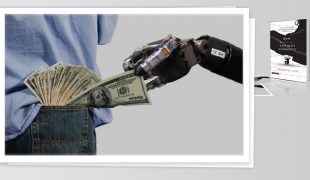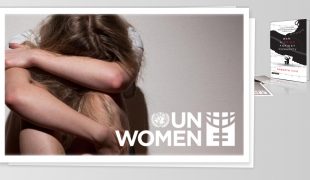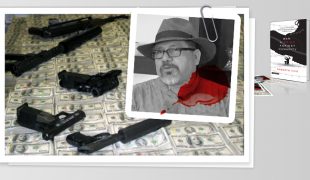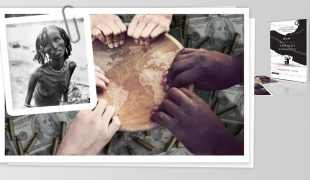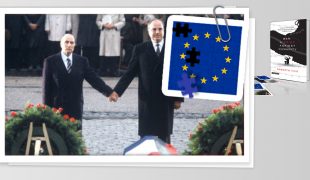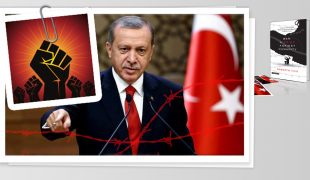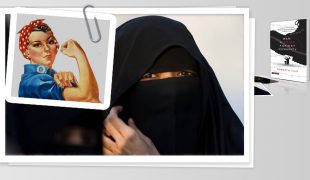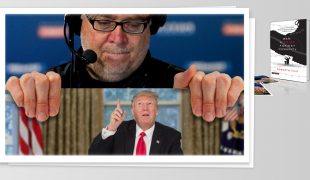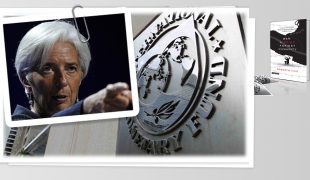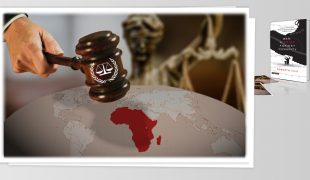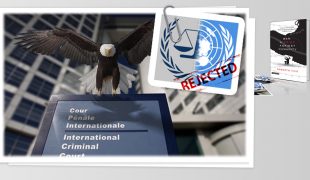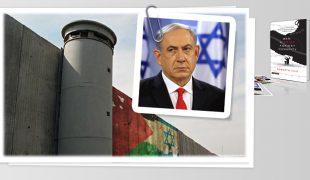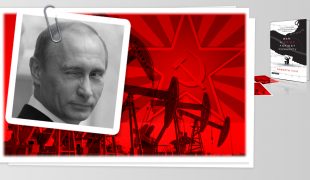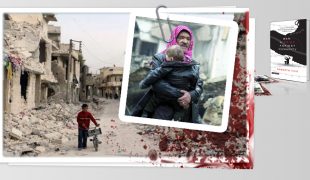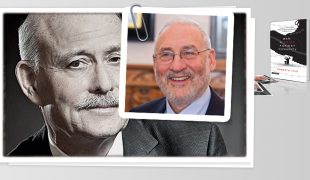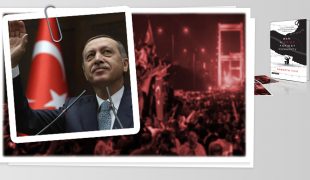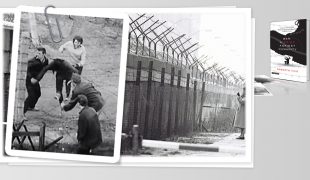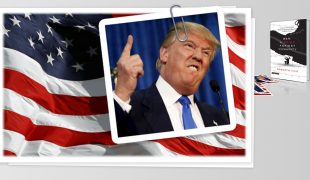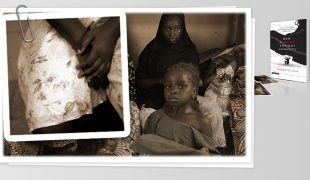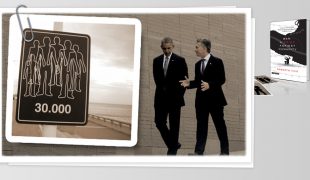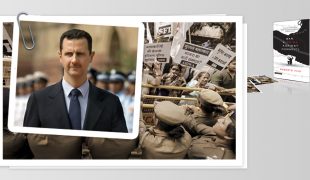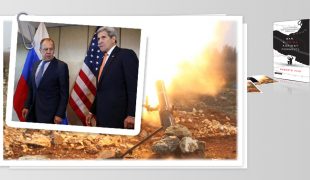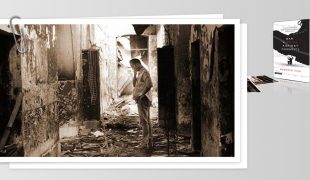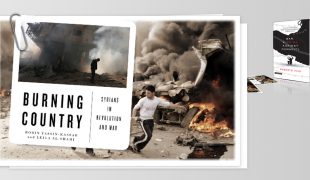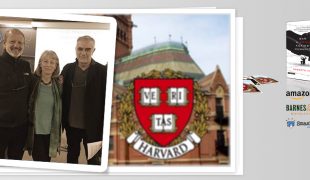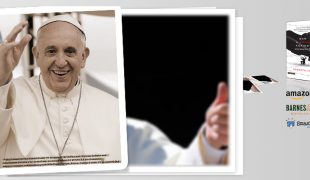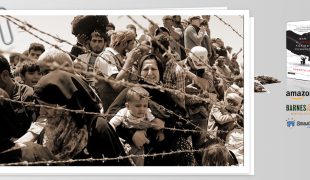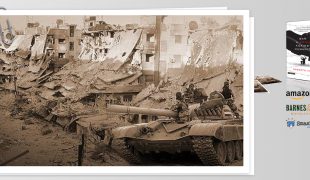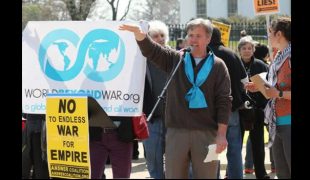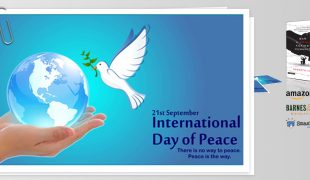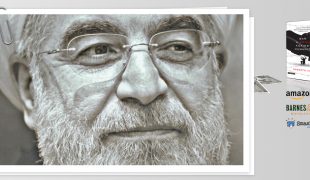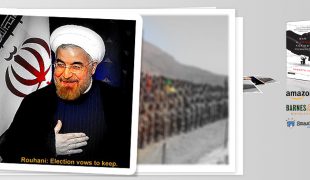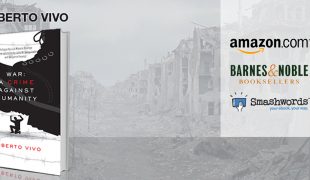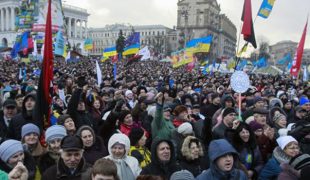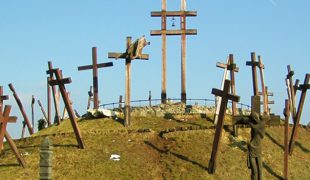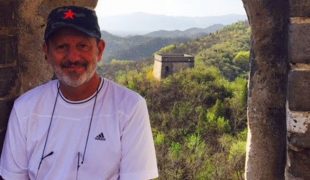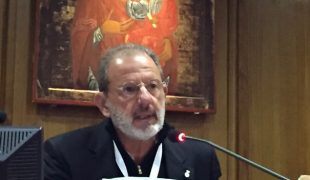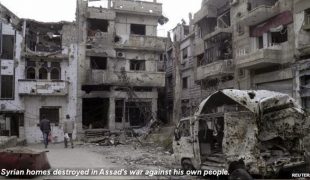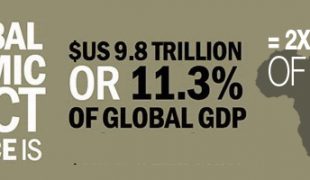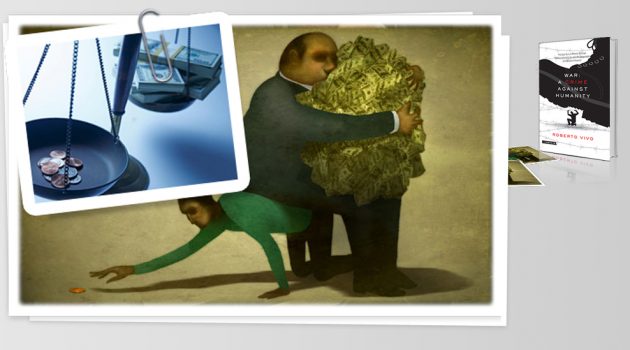
The Rise of Populist Nationalism: Part IV — The Inequality Factor
Although an undercurrent of populist nationalism has been surging toward the surface since the turn of the millennium, it is no coincidence that it has become a fully-fledged international trend in the years since the 2008 world financial crisis, the catalyst for which was the US mortgage debacle and the ensuing stock market crash that it triggered. Nor is right-wing populist nationalism the only manifestation of rage and frustration on the part of common citizens at what they perceive as a broken system and as a worldwide “game”—led by the West—in which the deck is definitively stacked against them. Trumpism in the US, Nigel Farage’s Independence Party in the UK, the Le Pen far-right political dynasty in France, etc., are mirrored in a wide variety of political colors in grassroots movements around the globe, of which the liberal Occupy movement and the conservative Tea Party movement in the US are typical and opposite exponents.
In the new millennium, this view of a skewed world in which democracy is more lip-service than fact and in which 62 billionaires, with the help of highly-lobbied laws, have accumulated equivalent to half the wealth of everyone else on the planet has led not only to the kind of right-wing populist movements recently seen in Europe and the United States but also to left-wing populism like that experienced in Latin America—notably Venezuela, Argentina, Bolivia and Ecuador—although in practice such movements have often campaigned on the left while ruling in ways more in keeping with right-wing populism once in office. In practically every case in which populist nationalism has been successful in gaining any appreciable level of power, the result has seldom been increased democracy. On the contrary, the outcome has quite often been regimes that govern to their immediate constituency while ignoring or repressing the rights of the minority, a situation that, in certain cases, has been accompanied by massive corruption and economic decay.
This perception, then, of a skewed and increasingly undemocratic world isn’t wrong. Or at least not entirely so. What is erroneous, however, is the idea that democracy and injustice can be fixed by imposing autocratic or authoritarian models in countries where people deem democracy to have “failed”. In fact, democracy never fails: it is, instead, subverted, corrupted and ultimately lost through the dishonesty of its elected officials and the complacency and/or ignorance of their constituencies.
The UNESCO report indicates that there is at least good news in that inequality is finally being recognized as a growing and serious problem that needs to be faced and dealt with sooner rather than later, explaining that there has been “a five-fold increase in studies of inequality and social justice in academic publications since 1992” and that “numerous international reports and books on inequality have been published, and some have become international bestsellers.” But it adds that a great deal more study and concrete measures will be required to change the clear trend toward social injustice and that, “unless we address this urgently, inequalities will make the cross-cutting ambition of the Sustainable Development Goals (SDGs) to ‘leave no one behind’ by 2030 an empty slogan.”What is of crucial importance to point out is that the common denominator, across the board, in the rapid inroads being made by populist nationalism is ever-increasing inequality. Not merely economic inequality, but also inequality at political, social, cultural, environmental and knowledge-based levels. According to the 2016 World Social Science Report published by the United Nations Educational, Scientific and Cultural Organization (UNESCO) in conjunction with the Institute of Development Studies (IDS), “Too many countries are investing too little in researching the long-term impact of inequality on the sustainability of their economies, societies and communities.” The report adds that “the recent increase in economic inequalities seems to find its origin in the 1980s and 1990s, when the neoliberal paradigm became dominant in Western countries.” It is indeed that paradigm that has largely tipped the playing field by equating ever-increasing accumulation of wealth at the top of the food chain with “healthy capitalism”.
One of the problems with research carried out to date is that it tends to be theme-specific, focusing on one type of inequality or on a single region, when the truth is that there is a broad range of inequalities that today affect every country and region on earth in one way or another and that inequality has become so ingrained that even the people who easily fall under the spell of the empty “I-can-fix-it-all” rhetoric of populist nationalist leaders would, if asked, have trouble vocalizing their complaints about all of the inequalities facing them, even if they know perfectly well that their lives should be a lot better than they are, and that they are outraged over a system that they see as unfair, unresponsive, loaded against them, and essentially corrupt.
But today’s all-pervading inequality goes far beyond these more commonly known tipifications. Take, for instance, political inequality, or the varying capacities of individuals or groups to influence political decision-making and to effectively benefit from it and/or to actually enter into some sort of meaningful political action. This type of inequality has been dramatically revealed in the current and closely-watched US election process in which two of the least popular presidential candidates in American history are the last two standing in a race that included an incredibly successful independent candidate, who, in the end was forced to bow to the enormous wealth and power of the other two and in which there was a plethora of “also-rans” who simply never had a chance against the main two candidates’ combined resources. Add to this the recent approval by the US Supreme Court as “constitutional” of sky’s- the-limit donations by big business to election campaigns of their choice and it is hard not to perceive of the common US citizen as overwhelmingly disenfranchised at a political level.The fundamentals of the distinct yet interlinked inequalities that the UNESCO/IDS report contemplates are clearly definable. The type of inequality that comes to the surface most quickly is, of course, economic—differences in income levels, employment, assets, available capital and variations in living standards. Only slightly more subtle is resulting social inequality, affecting not just variations in social status per se from one group to another, but also in the functionality of education, health care, justice and social protection systems. Linked to this second type of inequality is cultural inequality, which encompasses discrimination based on gender, ethnicity, race, religion and other sorts of group identity factors.
A frequent offshoot of political disparity is spatial inequality, or, as the UNESCO report describes it, the marked differences that exist from one region to the next or between urban centers and marginalized peripheral or rural zones that because of where they are or the influence they wield, possess more or fewer resources for their development. And this is, in turn, linked to environmental inequality, which refers to uneven access to natural resources and their exploitation, exposure to pollution and its risks and differences in access to the agencies required to adapt to and/or solve such disparities.
Yet another heading is knowledge-based inequality. This refers to both access and contribution to a variety of distinct types of knowledge and sources, as well as to the consequences of this type of inequality. A good example of this is how world statistics are frequently skewed by the fact that vastness of knowledge is often limited to the resources applied to gathering it. Therefore, enormous amounts of data may be accumulated on issues affecting the richest countries or regions in the world, while little or no comparative knowledge may be forthcoming regarding those affecting the world’s poorest nations because of the dearth of resources for data-gathering in those places.
While inequality can be seen as a major problem for which a swift solution must be found (and indeed that is the case), it is, in the end, a consequence rather than a cause. It is less likely, then, that a solution can be found by concentrating on the consequence than by identifying and focusing on its sources. And the first source that needs to be analyzed and dealt with is the ever-increasing concentration of economic and political power in the hands of an ever more exclusive elite that protects and defends its own selfish interests exclusively.
The generation of wealth as such is not the problem. On the contrary, the problem comes when that wealth is used to create and acquire the kind of political power necessary to institutionalize greed and corruption with the aim of largely relieving the richest of the rich from the obligation of paying their fair share back into the very societies that have made them wealthy. In other words, a major problem in much of the West is that the wealthiest citizen and entities simply don’t pull their wait in terms of either seeking to improve the lives of the poorest segments or to alleviate the social/fiscal burden that inevitably falls to the middle class. And since they form precisely the segment with the power to both foster and undermine government administrations and deeply influence the law, there is no way to ensure that they do.
American billionaire/philanthropist Warren Buffett laid this dilemma out best when he wrote that it was completely unfair that he should pay a much lower tax rate than the office workers in his company. While conservative writers and “one-percent” surrogates alike have rushed to accuse the billionaire of “faulty math” (Warren Buffett, faulty math, right?) the point he was seeking to make is clear. The top one percent in the US and much of the rest of the West is not paying anything close to its fair share toward the creation of a more just society. And the only way to change that is through greater democracy and worldwide cooperation, not less, because the undermining of democratic rule by the power of wealth, greed and political intrigue is precisely the problem.
But not the only one. Simply making everyone pay their fair share won’t automatically guarantee that the cumulative wealth of the world is distributed in such a way as to improve the lives of every human being on earth—to start with, at least, to end world hunger, which is always talked about as if it were an impossible task, when it is, in fact, absolutely “doable”, if the richest nations on earth would simply destine part of their enormous military budgets to overcoming famine. That will, of course, require an earth-shaking change in mindset worldwide. It will mean mounting a concerted worldwide effort to end war, promote peace and cooperation, ensure inclusion of all stakeholders, stimulate multi-sectorial participation in the search for mutual solutions to common problems, and generate worldwide awareness of and interest in the need to work together on a massive scale, if we are to have any hope of surviving as a species.
While there are those who will argue that global inequality, on a general scale, declined in the first decade of the new millennium, the UNESCO report indicates that practically all of that improvement was due to vast economic development in China and India with their enormous populations, while, in the West, in Africa and elsewhere, inequality has continued to worsen and could eventually cancel out improvements in the East at a bottom-line level. Add this to the unpredictable tendency of work, as we have known it up to now, to be disappearing as a means for common everyday people to earn a living and the future looks grim. The cause for this is that social advancement has not kept pace with technological advances and those in power tend—whether by reason of greed or ignorance—to apply obsolete formulas to the attempted solution of an absolutely new and burgeoning dilemma.
All in all, the greatest problem of inequality at every level facing the world today is a profound lack of greatness that is affecting not only business and government but also their individual leaders around the globe. Hollow slogans by populist nationalist demagogues—like US presidential candidate Donald Trump’s “make America great again” bumper-sticker catch-phrase—will only take on true meaning when world leaders put their petty grievances, political rivalries, war-like rhetoric, violent actions and avaricious personal interests behind them and agree to work together to solve, rather than helping create, the world’s most pressing problems, and when common citizens, en masse, and in the strongest possible terms, demand that their leaders do so. Until that happens, the vast majority of the world’s population can expect to see inequality continue to grow far worse before it lessens one iota.


